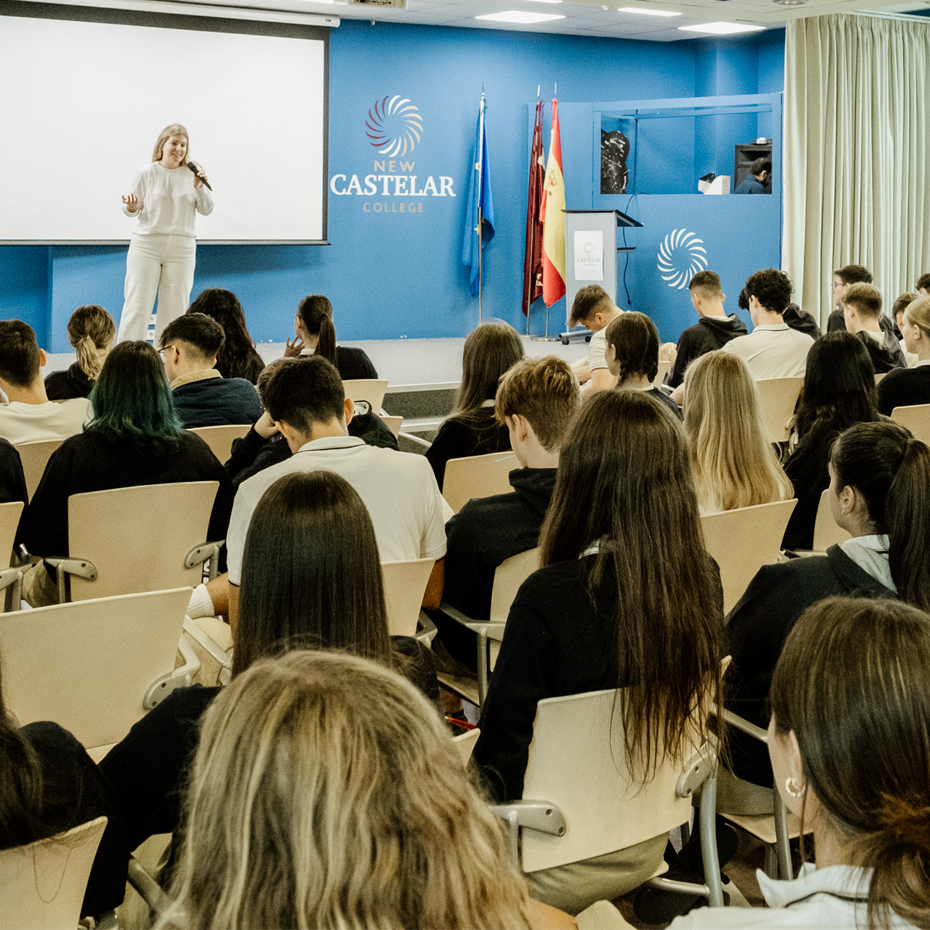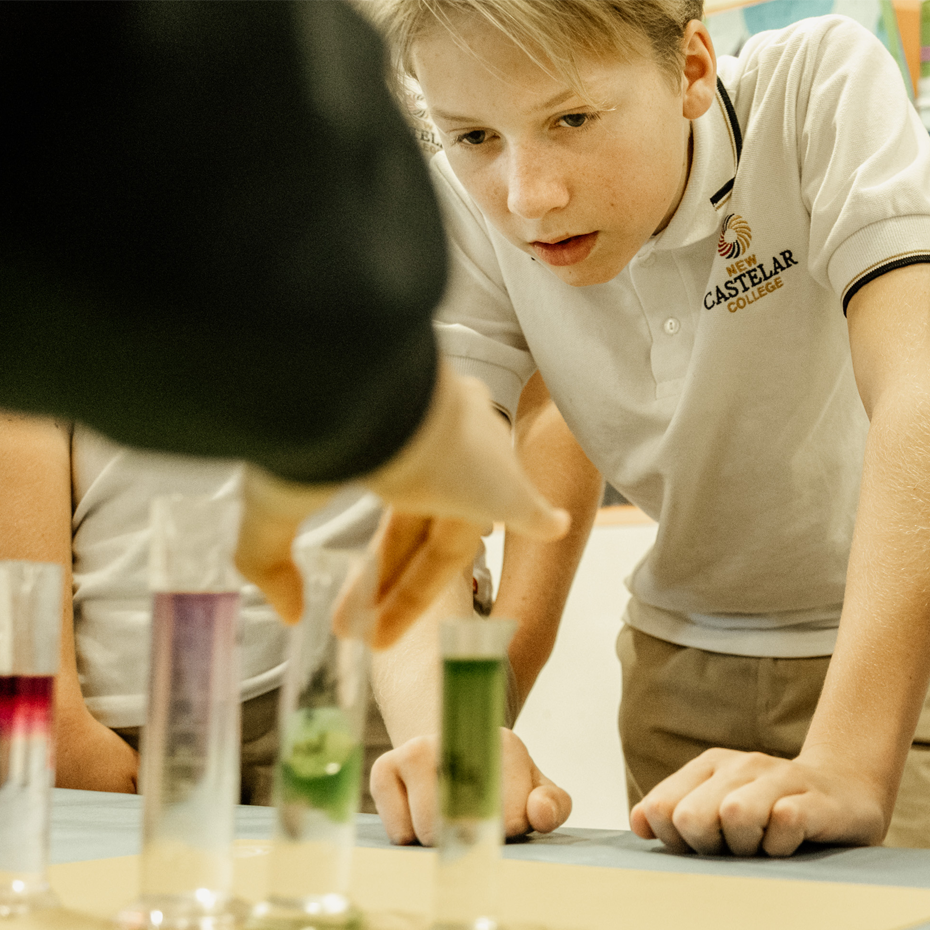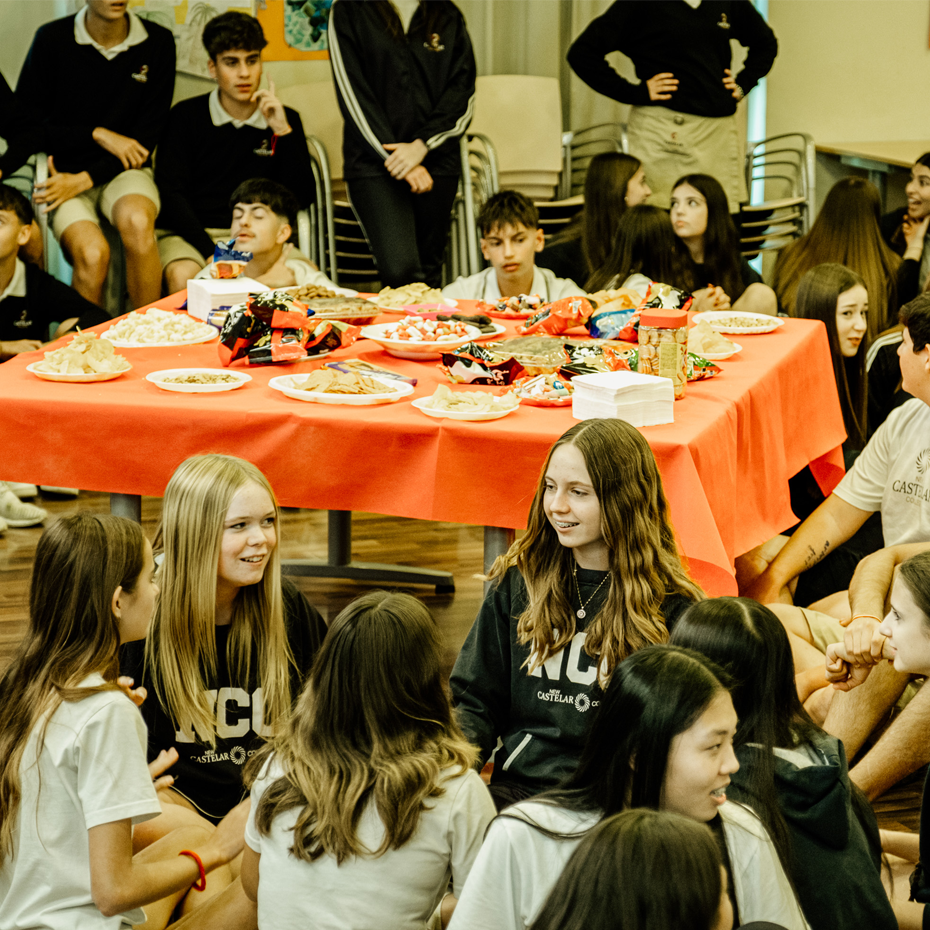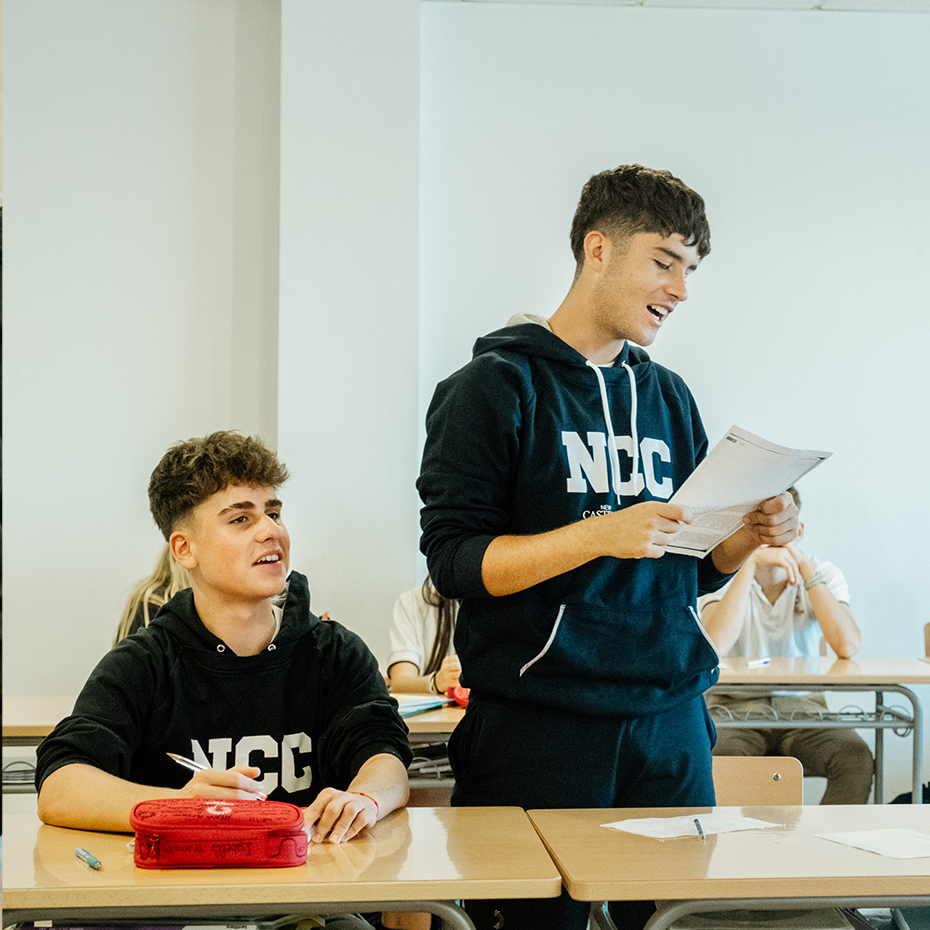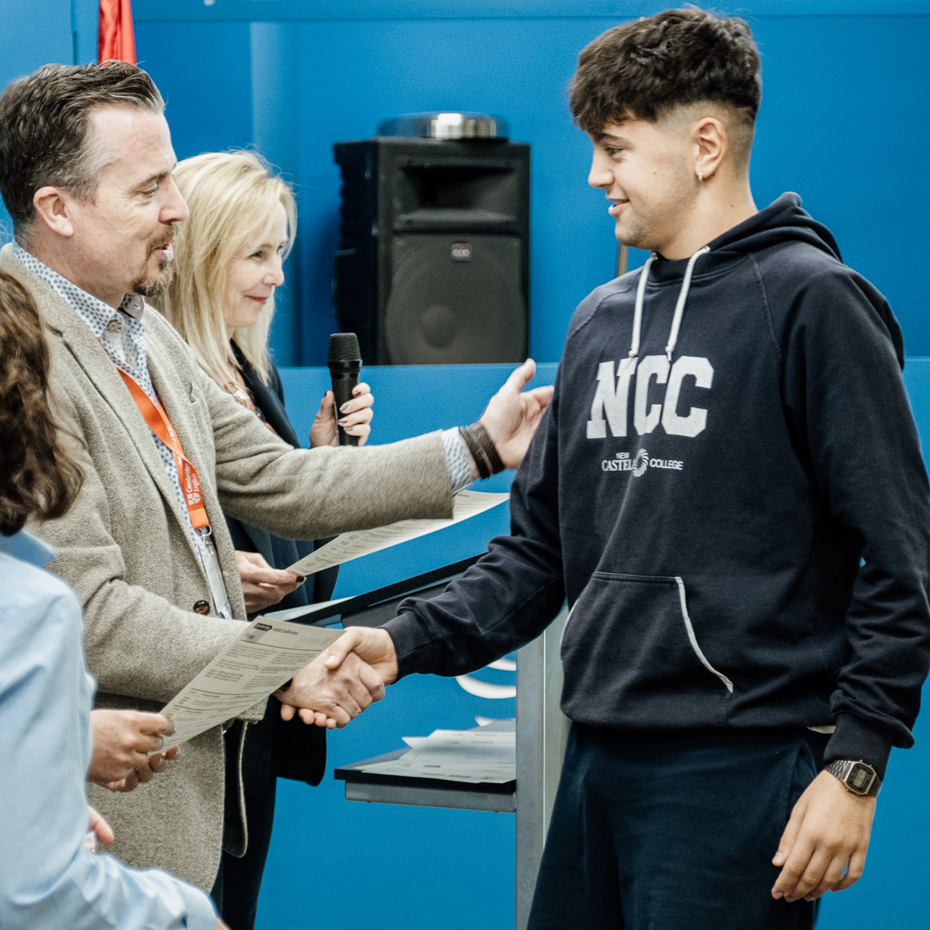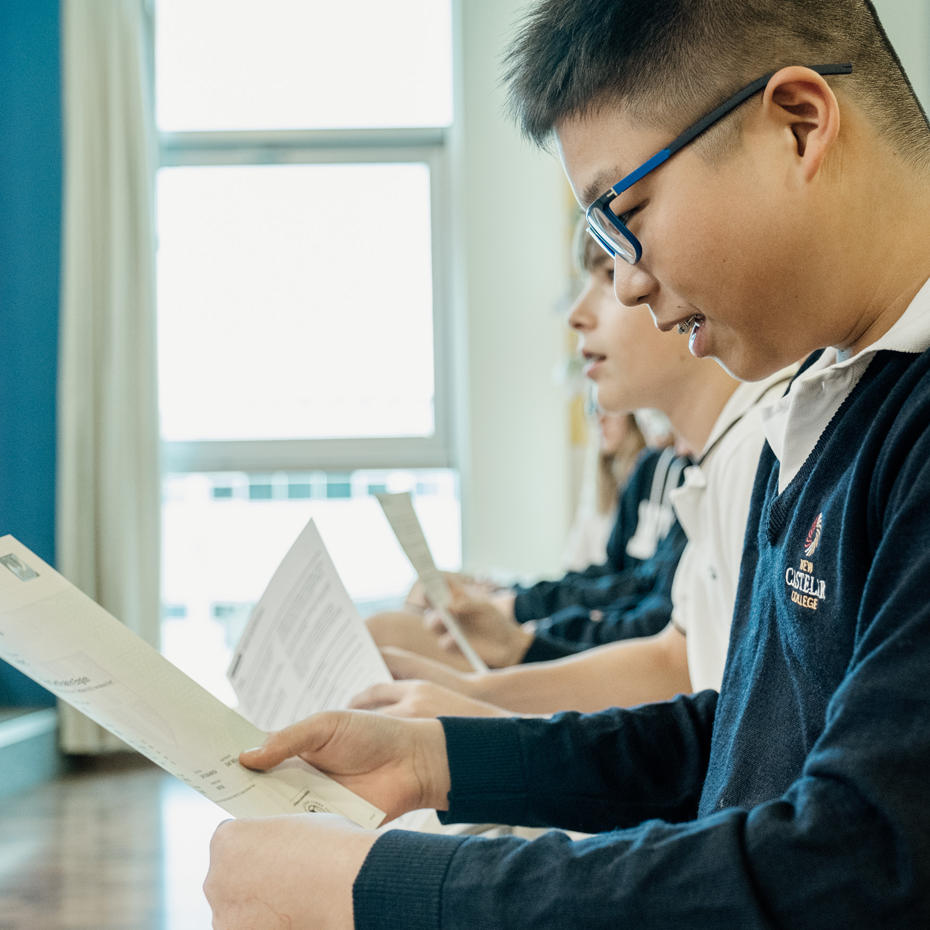Secondary Education
The Future Starts Today!Compulsory Secondary Education comprises four academic years, which students study between the ages of twelve and sixteen (provided no year is repeated). This period is divided into four academic years and is organized in different subjects, in accordance with the principles of common education and taking student diversity into account. Compulsory Secondary Education contributes to developing a series of skills in students, delivered with a coherent methodology and agreed assessment criteria:
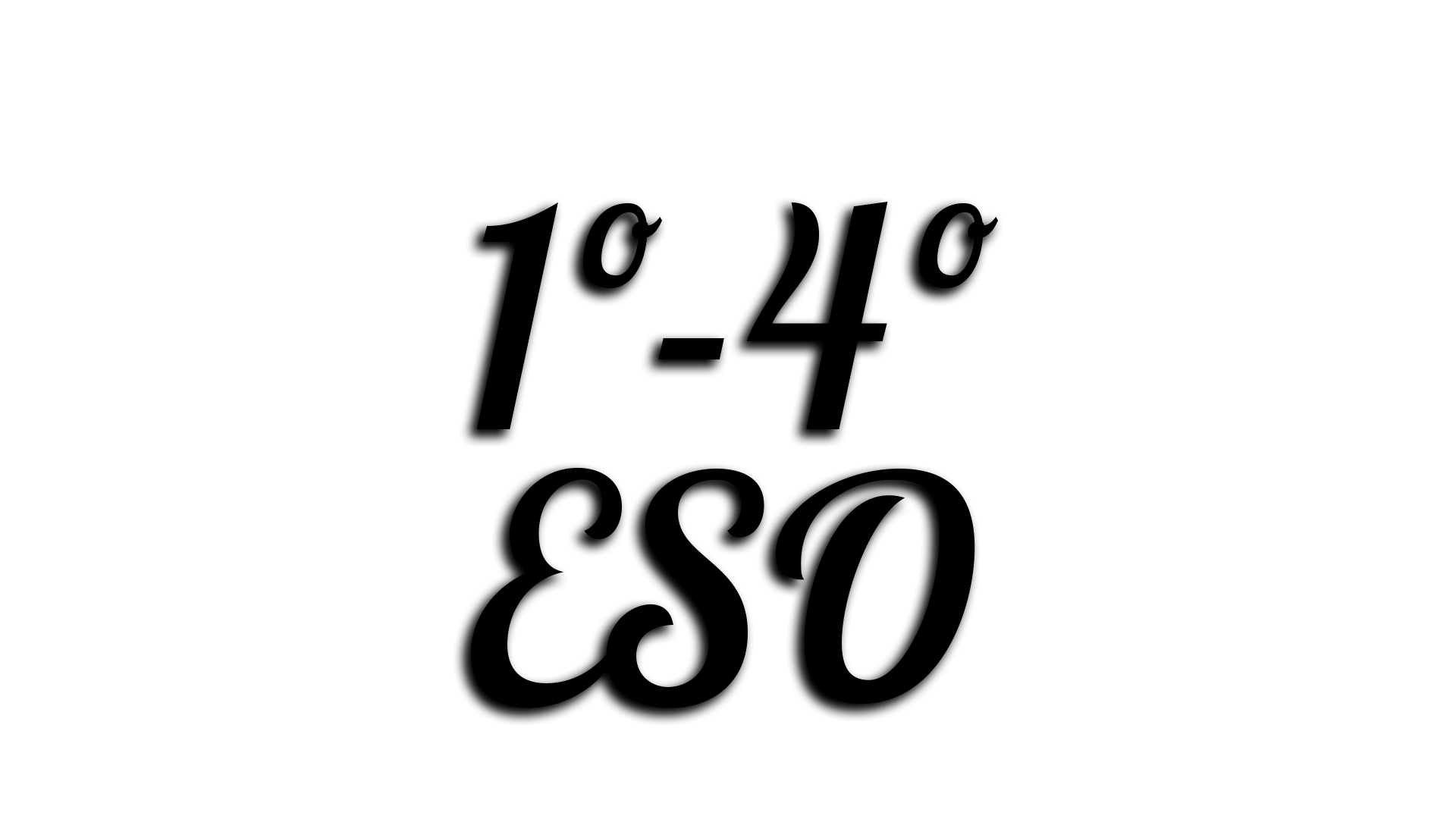
OBJECTIVE A: ATTITUDES OF COEXISTENCE IN A PLURAL AND DEMOCRATIC SOCIETY
A.1.- Know, take on and exercise their rights and duties in terms of respect for others; practice tolerance, cooperation and solidarity between people and groups; take part in discussion and reinforcing human rights as common values of a plural, open and democratic society.
A.2.- Encourage attitudes that favour coexistence and avoid violence in the school, family and social spheres.
A.3.- To value and respect, as an essential principle of our civilization, the equal rights and opportunities of all people, regardless of their sex, rejecting any type of discrimination.
OBJECTIVE B: BASIC KNOWLEDGE AS FREE CITIZENS
B.1.- Analyse the mechanisms and values that govern the functioning of societies, especially those related to the rights, duties and freedoms of citizens, and adopt personal judgments and attitudes regarding them.
OBJECTIVE C: SPIRIT OF SELF-IMPROVEMENT BASED ON SELF-KNOWLEDGE
C.1.- Acquire, develop and consolidate habits of discipline, study, individual and team work as necessary requirements for the effective performance of learning tasks and as a means of personal development.
C.2.- Develop an entrepreneurial spirit and self-confidence, participation, critical approach, personal initiative and the ability to learn how to learn, plan, make decisions and take on responsibilities, valuing effort as the way to overcome difficulties.
OBJECTIVE D: CREATIVE APPLICATION OF PROBLEM SOLVING
D.1.- Conceive scientific knowledge as an integrated knowledge structured into different disciplines, know and apply the methods of identifying problems in the various fields of knowledge and experience.
OBJECTIVE E: UNDERSTAND DIFFERENT TYPES OF LANGUAGES AND CODES
E.1.- Understand and correctly express complex oral and written texts and messages in both Spanish and English, and start becoming familiar with reading and studying literature.
E.2.- Understand and express themselves in one or more foreign languages appropriately and effectively.
E.3.- Value artistic creation and understand the language of different artistic styles, using various means of expression and representation.
OBJETIVE F: HARNESSING INFORMATION SOURCES, INCLUDING ICT (INFORMATION AND COMMUNICATION TECHNOLOGY)
F.1.- Develop basic skills in the use of information sources to critically acquire new knowledge, as well as a basic preparation in the field of technologies, especially those of information and communication.
OBJECTIVE G: KNOWLEDGE OF THE SOCIAL ENVIRONMENT AND INTERCULTURALITY
G.1.- Know the fundamental aspects of the culture, geography and history of Spain and the world; respect artistic, cultural and linguistic heritage; know the diversity of cultures and societies in order to be able to value them critically and develop attitudes of respect for one's own culture and that of others.
OBJECTIVE H: HEALTH AND PHYSICAL WELL-BEING BASED ON KNOWLEDGE OF ONE'S OWN BODY
H.1.- Know about how the human body functions, as well as the beneficial effects of physical exercise and proper nutrition on health, incorporating the practice of sport to promote personal and social development.
H.2.- Value social habits related to health, eating and drinking, care of living beings and the environment, contributing to their conservation and improvement.
New Castelar College, The future Starts Today!
Contact us!
We are happy to help you
